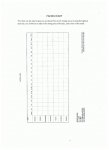Hi
I'm looking for some advice and suggestions to help me manage my symptoms. I'm trying to figure out my energy envelope and how to pace my activities.
I've been reading a lot of the information but I'm struggling ... or maybe I'm just impatient. I'd say my symptoms are mild to moderate. I work full time. I work from home one day a week but find that whether it's that day or the weekend I relax when at home and crash.
I've started to keep a detailed journal to see if I can identify patterns or triggers.
More than anything I feel overwhelmed and don't know where to start.
I'm looking for some advice and suggestions to help me manage my symptoms. I'm trying to figure out my energy envelope and how to pace my activities.
I've been reading a lot of the information but I'm struggling ... or maybe I'm just impatient. I'd say my symptoms are mild to moderate. I work full time. I work from home one day a week but find that whether it's that day or the weekend I relax when at home and crash.
I've started to keep a detailed journal to see if I can identify patterns or triggers.
More than anything I feel overwhelmed and don't know where to start.

